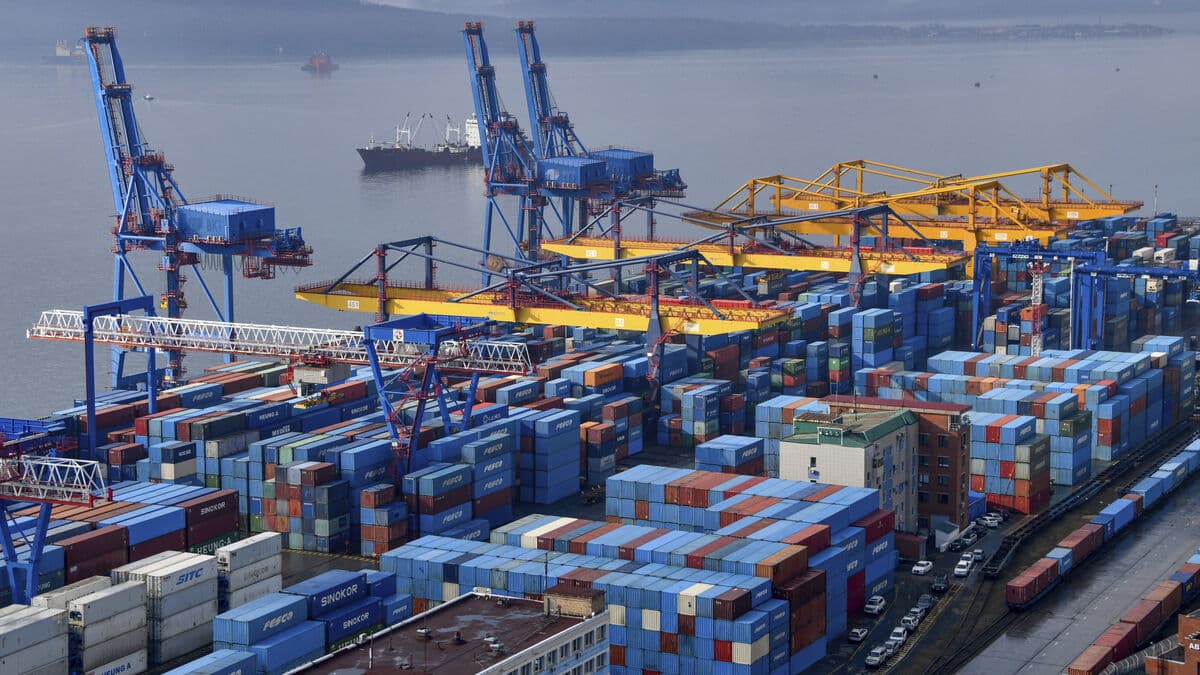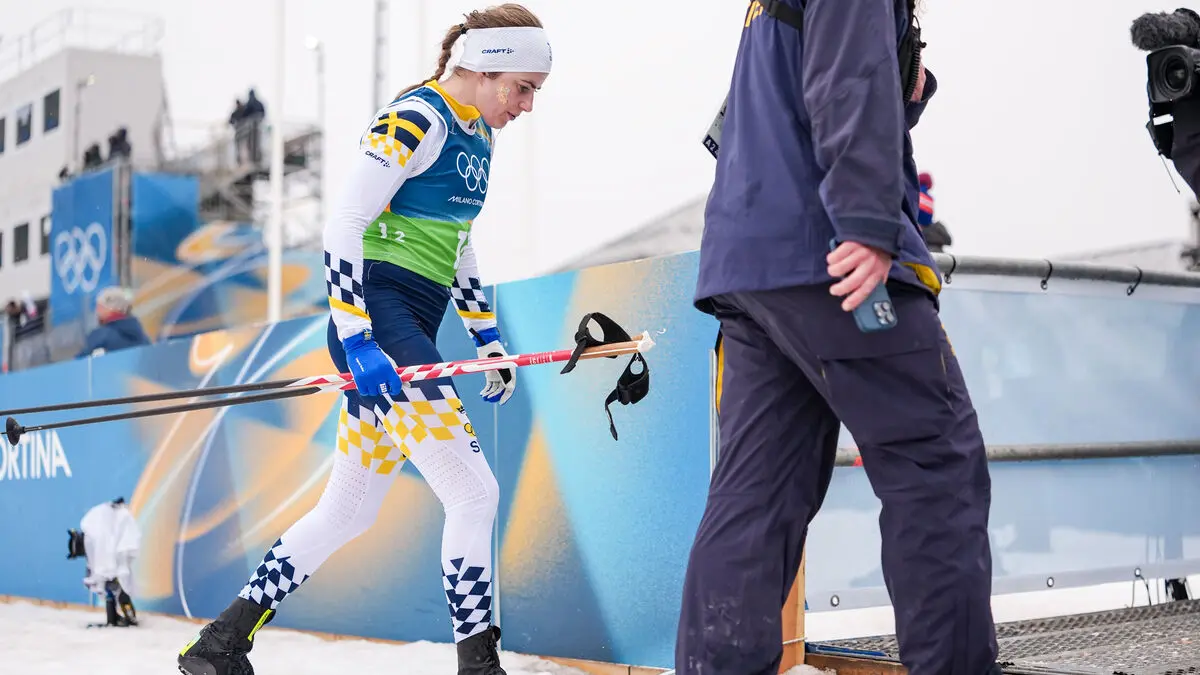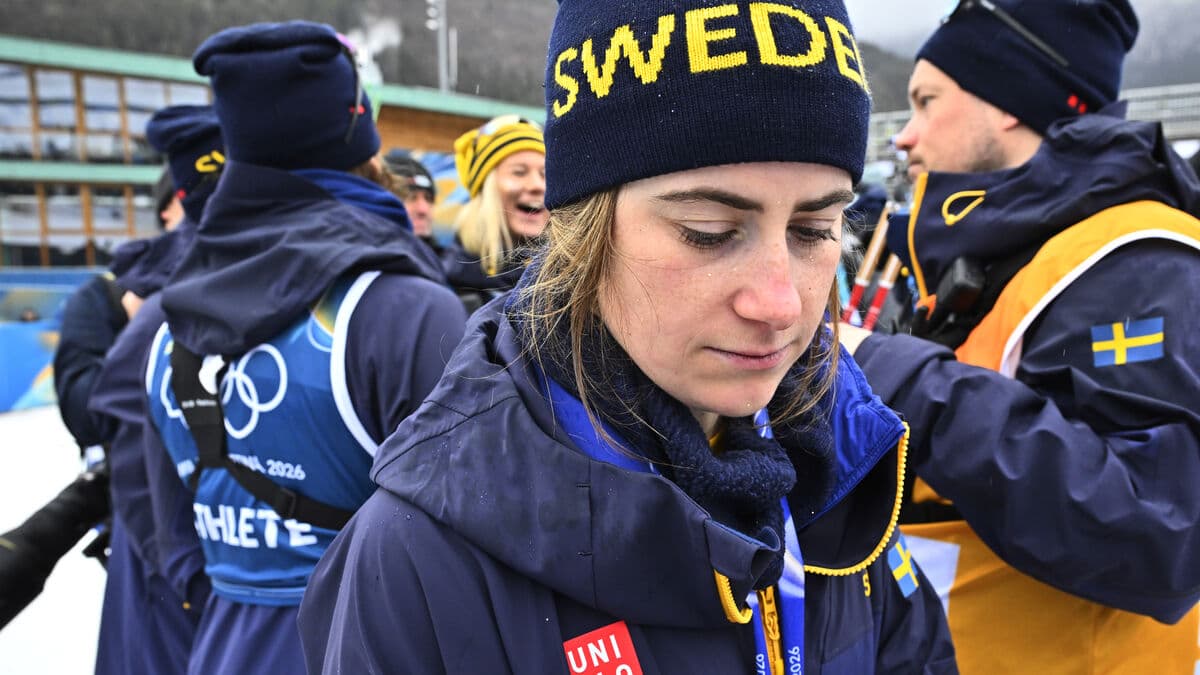Sweden's exports of goods to Russia have fallen sharply since EU sanctions were gradually introduced in response to the Russian offensive war against Ukraine.
To Turkey, exports of the sanctioned goods had increased by just over 60 percent compared to before the full-scale invasion, seen as an average per quarter from April 2022 to June 2025. To Kazakhstan, Kyrgyzstan and Uzbekistan, the increase was a total of 75 percent and to the South Caucasus 25 percent, according to figures provided to TT by the Swedish Board of Commerce.
But at the same time, there are significant increases in the value of goods exported to countries near Russia.
Ports in Russia
Some of this can be explained by companies that previously sold to Russia instead selling to new markets, or trading with surrounding countries. But this is insufficient to explain the entire development, according to the so-called Sanctions Cooperation Council's situation report.
"We can see patterns in how they end up in Russia. They go through these other countries instead," says Grenfors, who is also a police chief at the police's national operations department (Noa).
The situation concerns the period February 2022–September 2024. At the same time, reports of sanctions violations are still only a few. A handful of preliminary investigations are underway at the Police Authority and the Swedish Customs, which Grenfors describes as “worrying”.
“Deplorable”
It is sad, comments Finance Minister Elisabeth Svantesson (M) to TT.
It is not something that any company should engage in. In addition to being prohibited, companies have a moral responsibility not to fatten the Russian war chest and undermine Ukraine, according to Svantesson.
Grenfors leads the work of the council, where nine agencies have been tasked by the government to strengthen compliance with international sanctions, including by investigating and prosecuting violations.
While many companies put a lot of energy into complying with the regulations, there are also companies that more or less consciously circumvent the sanctions, according to Grenfors.
The big driving force is to make money from this, he says.
Tougher penalties
There is probably much more to be pulled out of the shadows, according to the council.
"That's one of the big challenges. The inflow of information is not at a high enough level," says Grenfors, emphasizing that you can tip the police anonymously.
New legislation came into force in June this year, following new EU directives, with tougher penalties for violations. Attempts, aiding and abetting and instigating certain sanctioned offences have also been criminalised.
I am hopeful that the new legislation will make it easier for us to get ahead.
The Sanctions Cooperation Council consists of the Swedish Economic Crime Authority, the Swedish Financial Supervisory Authority, the Strategic Products Inspectorate, the Swedish Chamber of Commerce, the Swedish Police Authority, the Swedish Tax Agency, the Swedish Security Service, the Swedish Customs Administration and the Swedish Prosecution Authority.
According to the Council, violations of sanctions occur in the following ways:
Swedish companies export to companies in countries that do not apply sanctions against Russia, from where resale takes place.
Complex and international company structures are used to hide real business partners.
Manufacturing or exports are moved to branches or subsidiaries in countries without sanctions against Russia.
Export of machinery and vehicles whose components can be disassembled and used for the manufacture of military equipment.
Procurement network with specialists.
Use of foreign powers' intelligence and security services.
Use of cryptocurrencies.
Source: Police/Sanctions Cooperation Council






